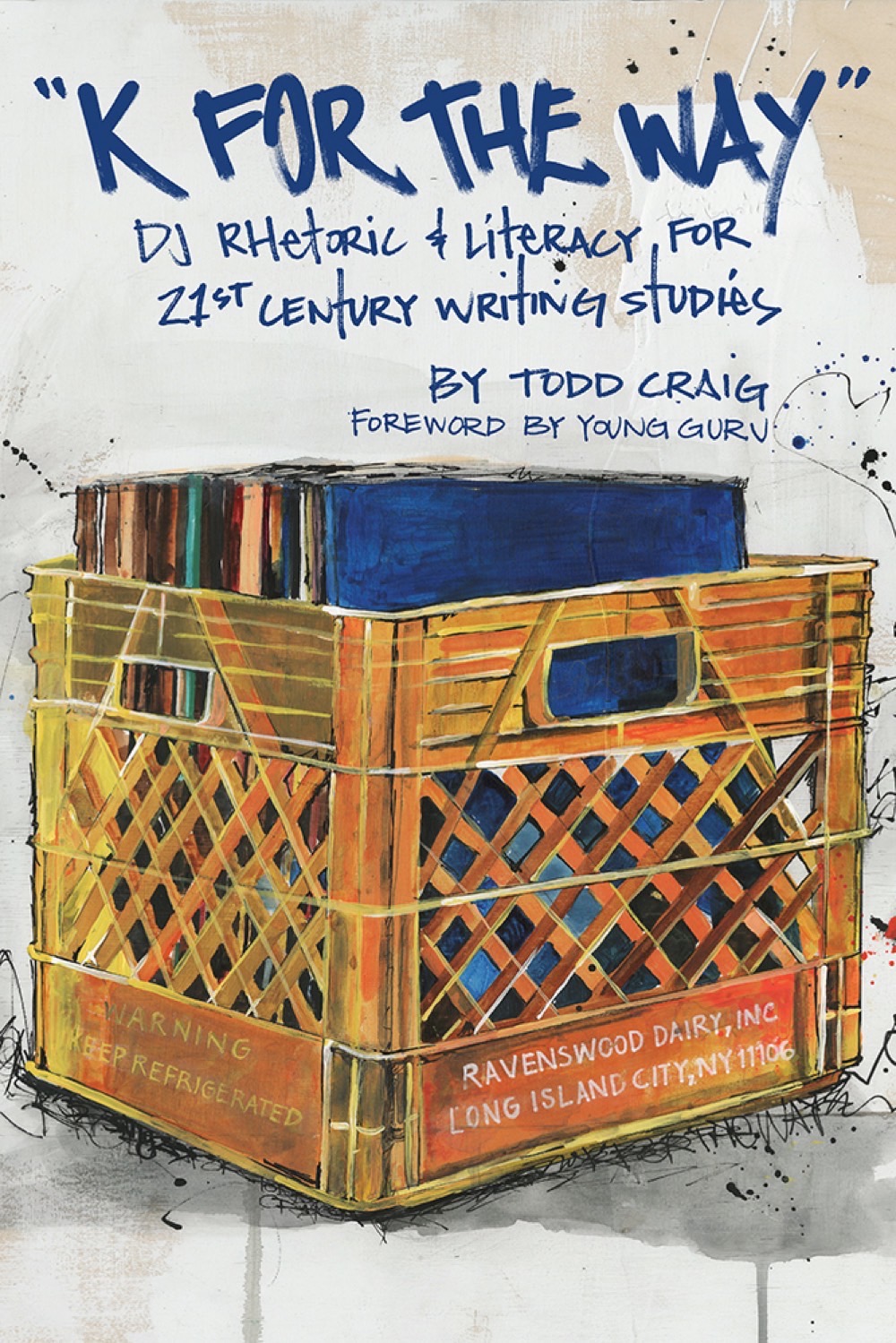Writing on the Social Network
Digital Literacy Practices in Social Media's First Decade
Accessibility Tools
DJ Rhetoric and Literacy for 21st Century Writing Studies

foreword by Young Guru
2024 NCTE David H. Russell Award
2025 CCCC Advancement of Knowledge Award
2025 RSA Book Award, Honorable Mention
"'K for the Way' is layered, joyful, and sonically sophisticated in style, tone, and technique. With lyrics, interviews, and the insight only a dope DJ/academic could provide, Craig reminds us of the responsibility of the DJ to inform the crowd as the sound of social justice movements. The rhetorical practices of the DJ are emancipatory with each cut. Craig's writing moves DJing back to the center of Hip Hop where it belongs.”
—Bettina L. Love, Columbia University, author of We Want to Do More Than Survive and Punished for Dreaming
"I can't put this book down! A comprehensive exploration and examination of Hip Hop as a boundless resource, 'K for the Way' is a tool that transcends time, race, gender, and socioeconomic status."
—Bruce Campbell Jr., Arcadia University, founder of the Dust + Dignity Project
"When we really come to terms with how the Hip Hop DJ reorganizes technology and popular culture, and how Hip Hop culture continues to remix modernity, the dangerous question is this: What is the humanities without an epistemology of the Hip Hop DJ? Todd Craig goes deep into the crates to keep us in the break, unleashing the neglected underappreciated rhetorical power of the Hip Hop DJ as a transformer, scholar, sponsor, and custodian of an essential 'way' that should be center stage in our scholarship."
—Chenjerai Kumanyika, New York University, founding member of The Spooks
"'K for the Way' is not just an interruption of writing and rhetoric as it has been taught in schools. It's flipping those scripts and crossfading what's been known with what's been felt through Hip Hop for at least the past fifty years. Academia should thank Hip Hop for Todd Craig and this contribution to scholarship.
—A. D. Carson, University of Virginia
"DJs are cultural creators. 'K for the Way' is a strong addition to the larger move in rhet/comp toward cultural rhetorics and the broader tradition in Hip Hop studies that places Hip Hop creators as experts.
—Emery Petchauer, Michigan State University
“This is Hip Hop pedagogy at its best. Craig uses DJ techniques in the actual writing—he digs through crates, he writes an entire chapter on the 1s and 2s, he makes both hard and blended transitions, he lets the platter keep spinning even after he is finished—it's fun, smart, and virtuosic."
—Justin Burton, Rider University
"This summer, a DJ really did save my life: as someone who feels consistently overwhelmed by the vast nature of scholarly discourse, “K for the Way” gave me a chance to breathe, to identify with something that has been a part of me for the better part of my life, and to see myself in a conversation about a topic I am more than passionate about."
—DeVaughn (Dev) Harris, Sounding Out!
“K for the Way” explores writing, rhetoric, and literacy from the perspective of the Hip Hop DJ. Todd Craig, a DJ himself, establishes and investigates the function of DJ rhetoric and literacy, illuminating the DJ as a fruitful example for (re)envisioning approaches to writing, research, and analysis in contemporary educational settings. Because it is widely recognized that the DJ was the catalyst for the creation of Hip Hop culture, this book begins a new conversation in which Hip Hop DJs introduce ideas about poetics and language formation through the modes, practices, and techniques they engage in on a daily basis.
Using material from a larger qualitative research study that illustrates the Hip Hop DJ as a twenty-first-century new media reader, writer, and literary critic, Craig blends interviews from prominent and influential DJs in the Hip Hop community with narrative and interdisciplinary scholarship from writing studies, Hip Hop studies, African American studies, urban education, and ethnomusicology. The voices of DJs sit front and center, presenting a revolutionary conversation about writing and communication in the twenty-first century.
Weaving Craig’s life experiences with important discussions of racial literacies, “K for the Way” is a layered and utterly singular exploration of culture, identity, and literacy in America.